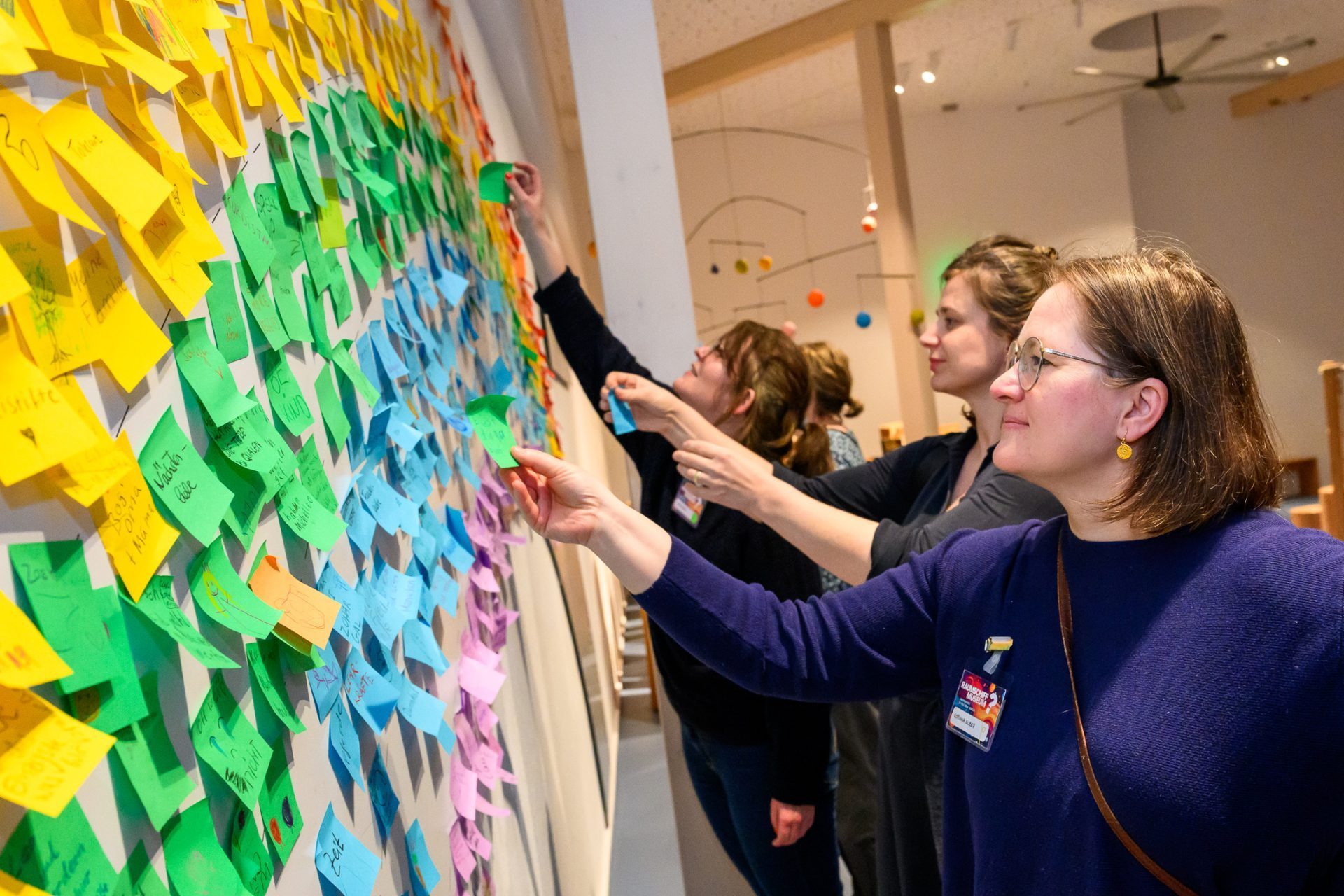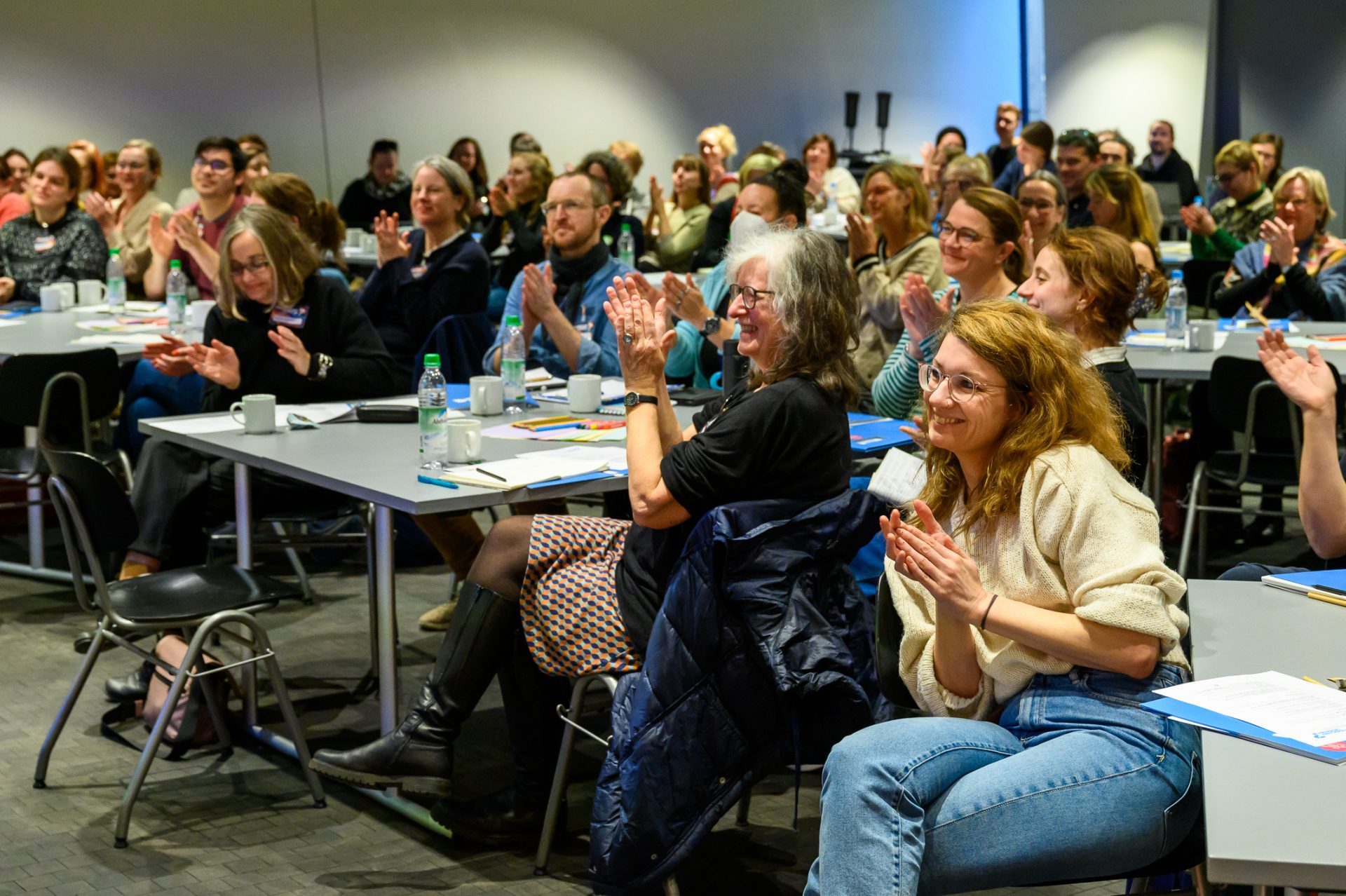Conference: SpaceShip Museum? 2024
Lorem ipsum
The “Spaceship Museum” is on its way through a universe of endless possibilities with children at the helm: What challenges might we encounter on our journey?
On 11 to 12 March 2024 the Spaceship Museum landed at the W. Michael Blumenthal Academy of the Jüdischen Museum Berlin in the immediate vicinity of the ANOHA – Kinderwelt. The event invited museum staff, educators, preschool teachers and pedagogical professionals to share their experience and expertise on early-childhood cultural education. The extensive programme offered numerous opportunities to discuss questions and methods for facilitating greater participation among our youngest museum visitors and members of society.


Lorem ipsum
In cooperation with the Bauhaus-SpaceLab and the Jewish Museum Berlin, the host institutions organised a multifaceted programme. Iman Reimann, pedagogical director and chairperson of the Regenbogen-Kidz daycare centre held the presentation “Kids in the House. Language – Movement – Being Different” which addressed the different ways kids experience museum spaces. In contrast to adults, it turns out that language is not the preferred means of communication among children. Daphne Wischhöfer, deputy director of the Haubachstraße / Pestalozzi-Fröbel-Haus daycare centre, focused on the relationship between children and museums and arrived at a similar conclusion. The more that co-determination becomes self-determination, the greater the sense of belonging children feel. Indeed, children want to be a part of the museum. The large potential of participatory methods in museums does not only involve including new visitor groups, but also serving as a vehicle to strengthen democracy.
To initiate a change in perspective, practical application was the chief focus in all the workshops at the conference. Participants kneaded, climbed, shared, experimented and discussed. Children from the Haubauchstraße daycare centre invited participants to paint upside-down in order to literally gain a change in perspective. The children’s advisory board at ANOHA encouraged the adults to have fun in the ball bath and not simply observe from the sidelines. Finally, the joint collaboration Space and Time: Spaceship Museum – The Kids’ Cosmos was introduced by all of the project’s participants.
At the end of the intensive days of exchange, there was one thing everyone agreed on: Children are not the visitors of tomorrow, but rather today! Museums have a responsibility to meet the needs of children. They should develop exhibitions and educational activities that allow children to shape their surroundings and demonstrate their ability to make an impact.
The convergence of such diverse expertise in one place gave rise to a broad discussion and helped initiate new networks – an unforgettable experience for every participant.

